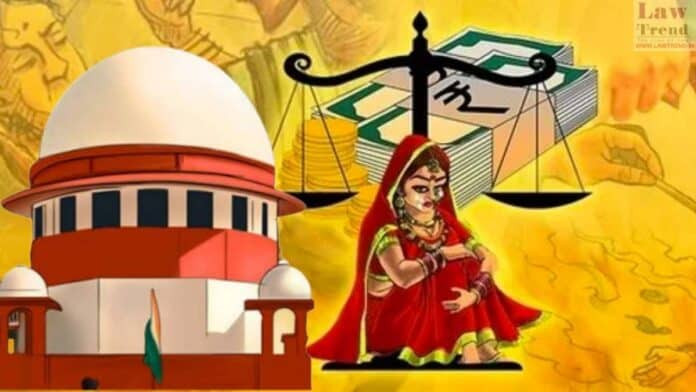The Supreme Court of India has ruled that the statutory presumption under Section 113B of the Indian Evidence Act, 1872, is mandatory in cases where a woman dies within seven years of marriage under suspicious circumstances and was subjected to cruelty for dowry. The Bench, comprising Justice B.V. Nagarathna and Justice R. Mahadevan, set aside
To Read More Please Subscribe to VIP Membership for Unlimited Access to All the Articles, Download Available Copies of Judgments/Order, Acess to Central/State Bare Acts, Advertisement Free Content, Access to More than 4000 Legal Drafts( Readymade Editable Formats of Suits, Petitions, Writs, Legal Notices, Divorce Petitions, 138 Notices, Bail Applications etc.) in Hindi and English.




